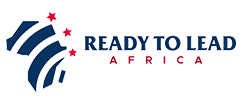South Africa, which has used democratic system of government since 1994, has always had a majority of its representatives in the National Assembly belong to the ANC political party. However, as a result of social, economic, criminal, and corruption issues within the nation, many South Africans desire reform in government policy that could change this trend. This report will focus on how these issues affect the political climate, how the people vote, and the role of young people within this election. The main parties vying for a majority in the National Assembly include the ANC, the DA, the MK, and the EFF. Since representatives within the National Assembly elect the president, it is crucial for a party to gain a majority of representatives in order to be able to select their desired candidate. Each party takes a drastically different approach in how they want to handle economic and social change. Their respective policies range from advocating for heavy privatization to pushing for increased government control, with some parties being as extreme as rejecting the current constitution. With these varying policies, not only can this election be seen as representative of whether or not citizens want change in the government policies that have been in place since South Africa became a democracy, but also how citizens want this change to take form.
